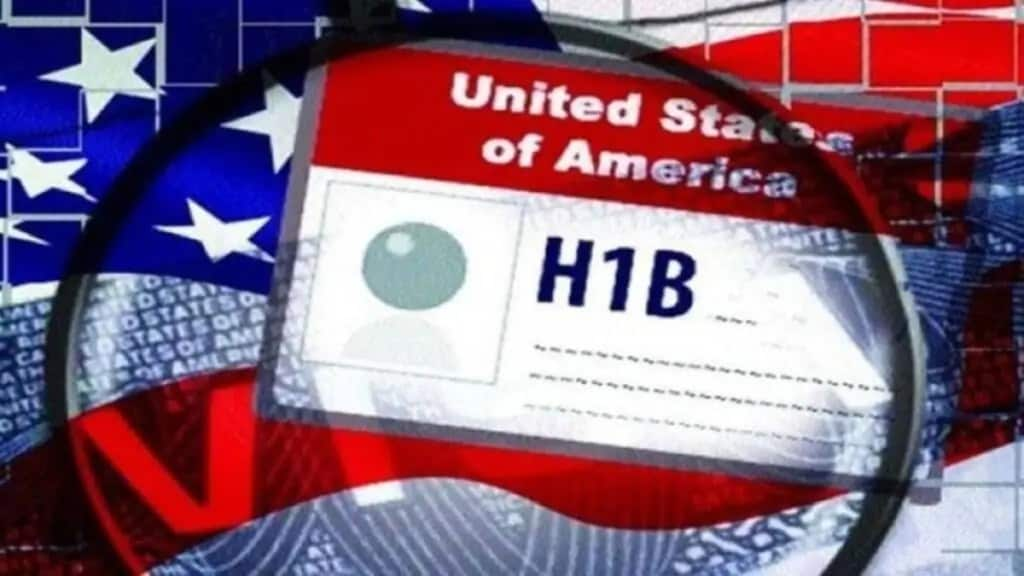Amid ongoing debates over immigration and H-1B visas, two Republican Senators have introduced a resolution to revoke a Biden-era rule that extended the automatic renewal period for employment authorisation from 180 days to 540 days. Finalised by the US Department of Homeland Security (DHS) on January 13, the rule benefits a broad group, including immigrants, refugees, green card holders, and spouses of H-1B and L-1 visa holders. The extension has been particularly beneficial for many foreign professionals, especially Indian nationals, who depend on these work authorisations to maintain their employment status in the U.S.
Republican Opposition to the Work Permit Extension
Senators John Kennedy and Rick Scott introduced the resolution on Thursday under the Congressional Review Act procedures, seeking to reverse the extension.
“The Biden administration’s dangerous rule automatically extended work permits for immigrants to 540 days. Giving immigrants more time to avoid reporting to US officials hampers the Trump administration’s efforts to enforce our immigration laws and keep Americans safe,” said Kennedy.
Scott echoed these concerns, accusing the Biden-Harris administration of attempting to dismantle the US immigration system.
“In a last-minute move, former President Biden passed a ridiculous rule that allows illegal aliens to keep jobs in the United States for over a year without authorisation. That’s insane, and it undermines President Trump’s mandate and efforts to secure the border and put Americans’ interests first,” said Scott.
The Senators warned that if the rule remains in place, the Trump administration may struggle to track individuals living and working illegally in the US.
What is H-1B, H-4, L-1, and L-2 Visas
H-1B Visa: A non-immigrant visa that allows US employers to hire foreign professionals in specialized fields such as technology, engineering, finance, and architecture. A bachelor’s degree or higher is typically required, and the US tech industry heavily depends on H-1B visa holders.
H-4 Visa: Issued to dependents of H-1B visa holders, including spouses and unmarried children under 21. Some H-4 visa holders may qualify for work authorization under specific conditions.
L-1 Visa: Used by multinational companies to transfer employees from overseas offices to US branches. It has two subcategories:
- L-1A: For executives and managers, allowing a maximum stay of seven years.
- L-1B: For employees with specialized knowledge, with a maximum stay of five years. This visa permits “dual intent,” meaning holders can apply for permanent residency while in the US.
L-2 Visa: Issued to dependents of L-1 visa holders, including spouses and unmarried children under 21. Many L-2 visa holders qualify for work and study opportunities in the US.
How Indian Professionals Benefited from the Rule
The automatic extension of work permits has significantly benefited Indian nationals, who form a large portion of visa holders in these categories. In 2023, the US issued 76,671 L-1 visas and 83,277 L-2 visas. While nationality-specific data is not available, Indian professionals dominate these visa categories, particularly in the IT and corporate sectors.
Indians also accounted for 72% of all H-1B visas in the 2023 financial year. In 2024, they made up 72.3% of the 386,000 H-1B visas issued, according to the Migration Policy Institute.
Although the exact number of H-4 visas issued to Indians is not publicly available, the high proportion of Indian H-1B visa holders suggests a significant overlap.
With Republicans pushing to reverse the automatic renewal rule, thousands of foreign workers, particularly Indian nationals, could face uncertainty regarding their employment authorization in the US. The potential rollback could disrupt work continuity for professionals, especially those in the technology and corporate sectors, who rely on timely renewals to maintain their legal status and employment stability.

